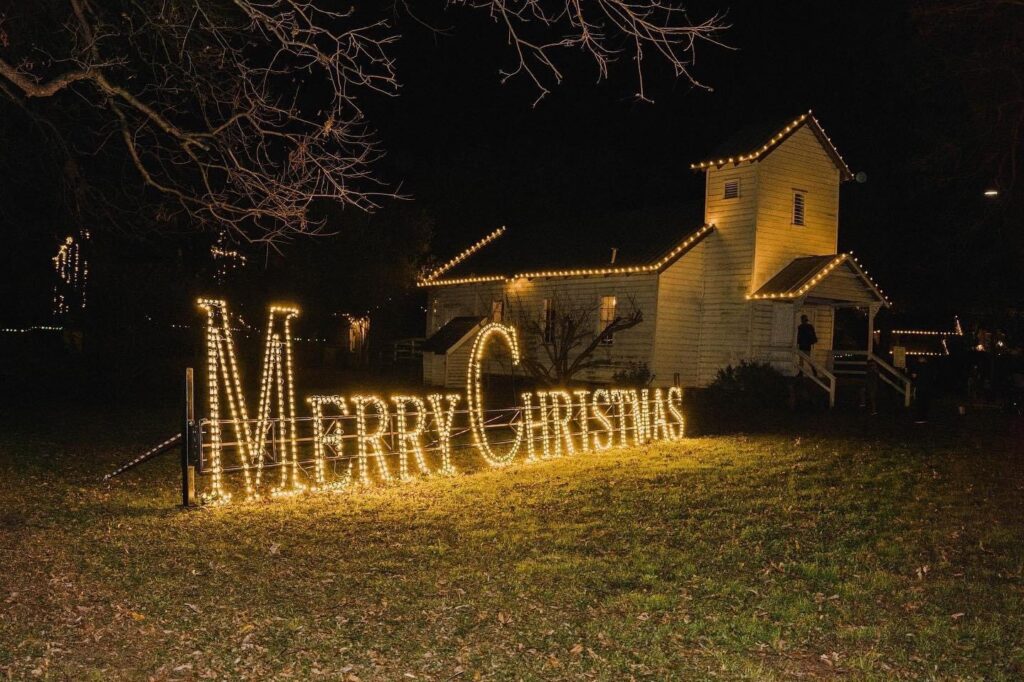We turn our calendars to August, the school year starts, and college football kicks off!

Local Wacoans should prepare for thousands of Baylor University students making their way back into town the week of August 18th, with classes starting on Monday, August 25th. It’ll be a quick turnaround for the Bears, with the first football game of the season taking place that Friday!
Baylor’s football team will be facing Auburn University for the start of the 2025-2026 season. The last matchup between these teams was in September of 1976, in which Baylor came out on top by one point. We hope head coach Dave Aranda and the Bears can put a bigger spread against the Auburn Tigers!
Under McLane Stadium’s lights on a Friday night, the Bears will be ‘blacking out’ McLane Stadium to celebrate their first week back and the start of a new season. Baylor’s football team is expected to have a substantial season this year, but promises have been made before. It’s widely understood that Baylor fans are expecting nothing less than a Big 12 Championship from Coach Aranda and the Bears.

Aside from this rare matchup against an SEC opponent, the Bears have a stacked schedule with seven home games on the docket. Schools like Samford, Arizona State, Kansas State, UCF, Utah, and Houston will be making their way to Waco throughout the season.
Students and alumni are looking forward to the Halloween Homecoming matchup against the University of Central Florida, which is a new addition to the Big 12 conference. On Saturday, November 1, 2025, expect hordes of hungover college kids dressed in their costumes from the night before, cheering on the Bears as they take on a new rival.
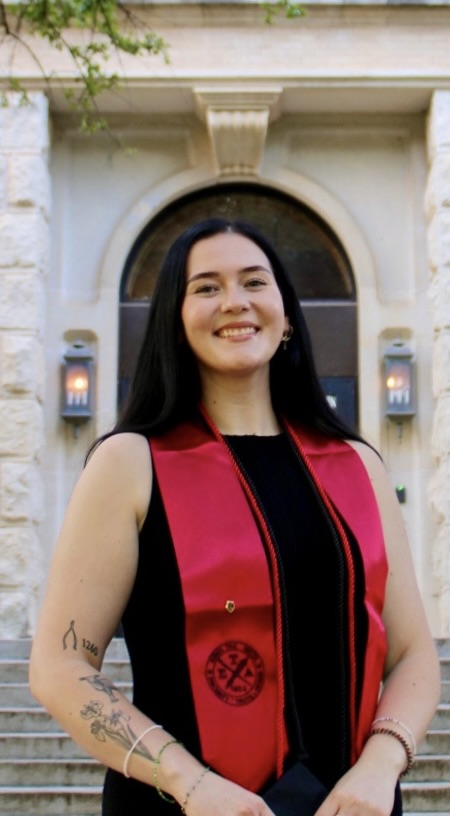
Elizabeth Riley hails from Tennessee and is a graduate of English Literature and Professional Writing & Rhetoric from Baylor University. With passions in archival preservation, communal connection, and women in sports, she writes because it matters, with hopes of bridging villages and fostering revelry amongst them.
A common misconception about Waco is that there’s nothing to do here.
However, Waco has been growing beyond proportions in recent years, which all living here can agree on due to the amount of traffic and the number of orange cones.
With the growth of our city and surrounding areas, the blossoming communities, and the booming industries, there are tons of new (or soon-to-be) establishments in Waco for natives, transplants, and visitors to check out. This is the second edition of “New Things for Old Wacoans To Do.” If you or someone you know is opening a business, is in need of promotion, or is just looking for ways to get involved with community, contact [email protected] for more information.
Taz Indian Cuisine
160 N New Road, Waco, TX 76710
This vibrant space is filled with traditional, authentic recipes made from fresh ingredients. From sizzling tandoori dishes to creamy butter chicken and hearty lamb curry, Taz Indian Cuisine brings the best cooking to your table every time. Want something mild or with a little more heat? Taz has something for everyone, including a special buffet–a standout feature of Taz Indian Cuisine allows patrons to enjoy endless servings of their favorite foods. From biryani to vegetable samosas, visit Taz Indian Cuisine for a delightful dining experience.
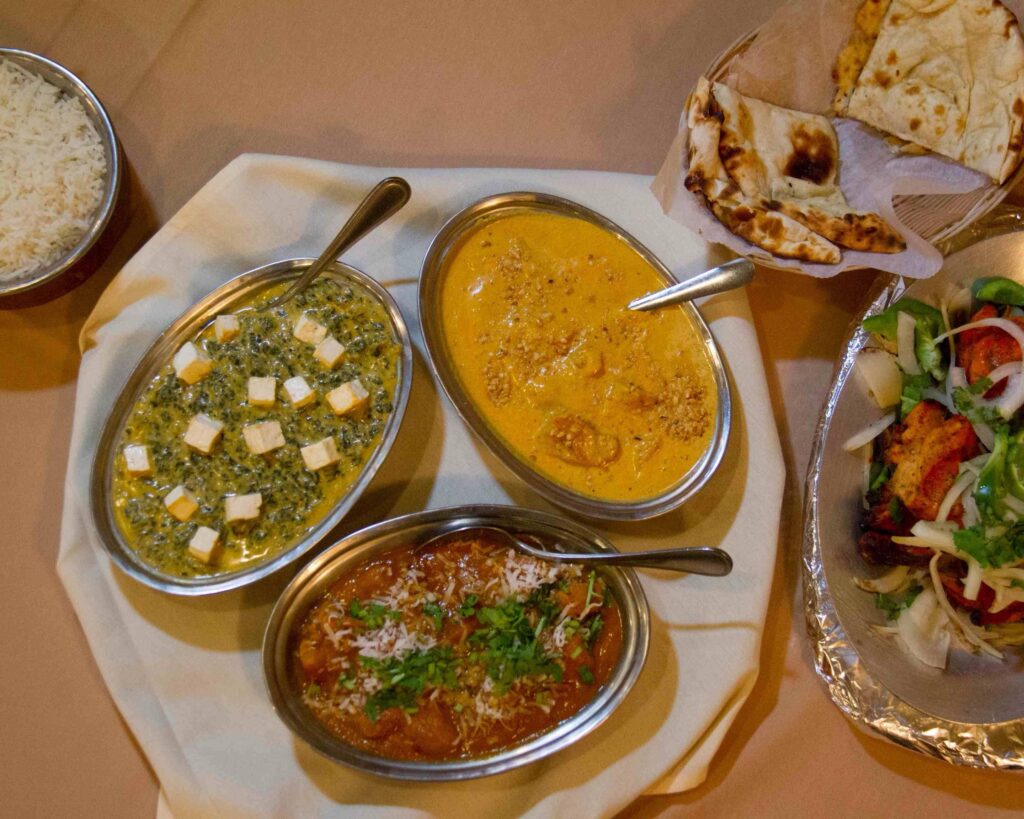
Masa Sushi Bar & Japanese Grill
824 Hewitt Drive, Suite 900, Waco, TX 76712
Masa’s chill, ambient environment makes it the perfect place for date night, a meal out with the family, or just enjoying some time alone. With hibachi, sashimi, soups, salads, and so much more, this sushi bar and grill has every staple you could be craving. Masa prides itself in its attention to detail, its creative flavor combinations, and its intention when serving guests. This is one of the few sushi restaurants in Woodway and the Greater Waco area, and people are very pleased to see its recent opening!
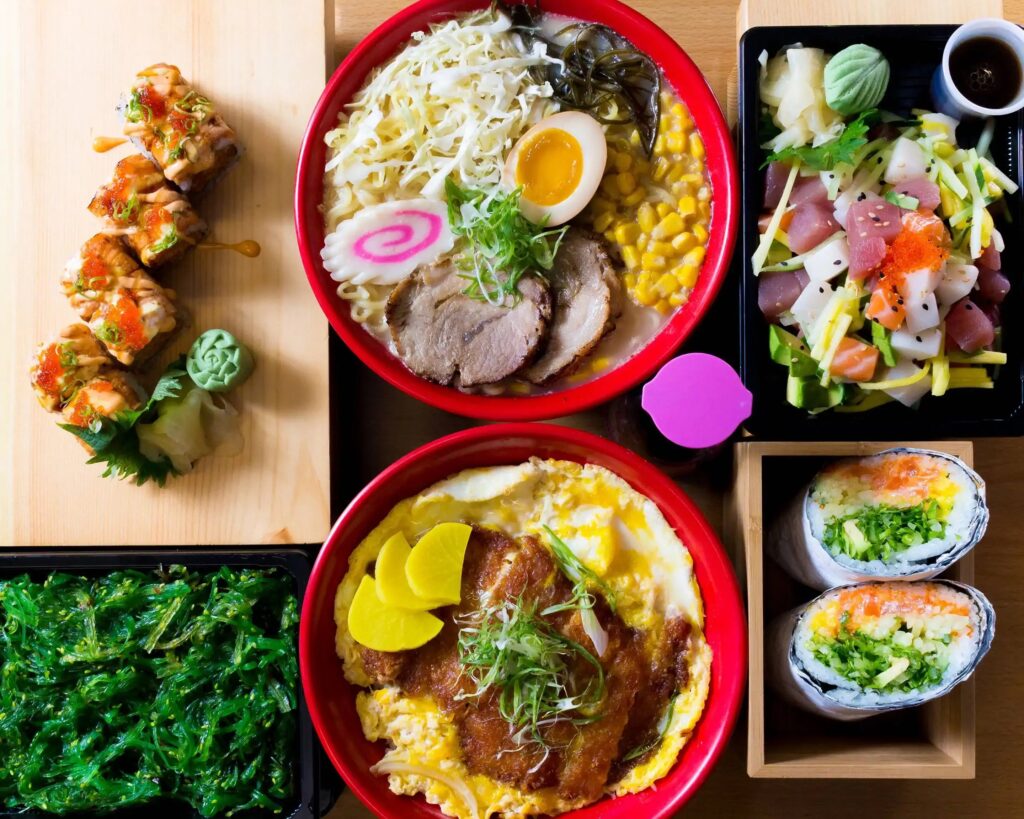
Gen Korean BBQ House
2412 Creekview Drive, Suite 100, Waco, TX 76711
With boundless menu options consisting of freshly prepared meats, seafood, and vegetables, to refreshing and traditional Korean banchan, Gen Korean BBQ House promises a wide array of complex flavors that will truly give your palate a new perception of taste. Founded in 2011 by two Korean immigrants in Los Angeles, Gen Korean BBQ has grown to over forty locations across the United States, while maintaining quality Korean and Korean-American cuisine. With so many “build-your-own” options, you’ll enjoy every meal at Gen Korean BBQ House.

Seoul Korean BBQ and Hot Pot (Opening Soon)
416 N Valley Mills Drive, Waco, TX 76710
The highly anticipated opening of Seoul Korean BBQ and Hot Pot is still unknown, but anticipation is growing for this new restaurant as drivers have witnessed the slow construction on Valley Mills. After taking over the space from Saffron, another local Indian restaurant in Waco, work crews have been tearing the building apart to prepare for the new establishment. Hopefully, an opening date is posted soon, and we can all get in to try the new hot pot spot!
Fox & Co Bakery
Local markets or online
After years of culinary experience and living in Waco, Victor Hernandez has ventured to share his talents and passions involving flour, fire, and flavor. To Hernandez, Fox & Co isn’t just a bakery. This company is a living archive of flavor and feeling. Their treats reside between ritual and rebellion, taking inspiration from the classics with an added twist. Fox & Co doesn’t play it safe with flavors, and neither should you. Order with Fox & Co and discover something you didn’t know you were craving. Need breakfast catered to an event? Custom treats in mind for a celebration? Fox & Co has everything you need with certified excellence.

Kilwins
323 S 6th Street, Suite 120, Waco, TX 76701
The iconic Kilwins is now in Downtown Waco! Just a short walk from the Magnolia Silos, Kilwins has some of the best chocolate, fudge, and ice cream in the city. With hand-crafted chocolates and twenty-four flavors of ice cream, this joint has every sweet treat you could need. Kilwins was originally founded in Michigan in 1947. Since then, they have been sharing sweets with much of the country, and we are happy to have them here in Waco.
M Doughtnuts
407 S 8th Street, Suite D, Waco, TX 76706
This donut shop is picture-perfect with absolutely stunning desserts. M Doughnuts produces hand-crafted, gourmet donuts that take a creative twist on your favorite classics. From pineapple to chocolate fudge-raspberry, every flavor profile is here. You can choose from lemon, wedding cake, classic sprinkles, and so much more when you visit M Doughnuts. The environment makes the doughnuts taste ten times better, with flashy pinks and coppers all over. You cannot miss the aesthetic daydream that is M Doughnuts!
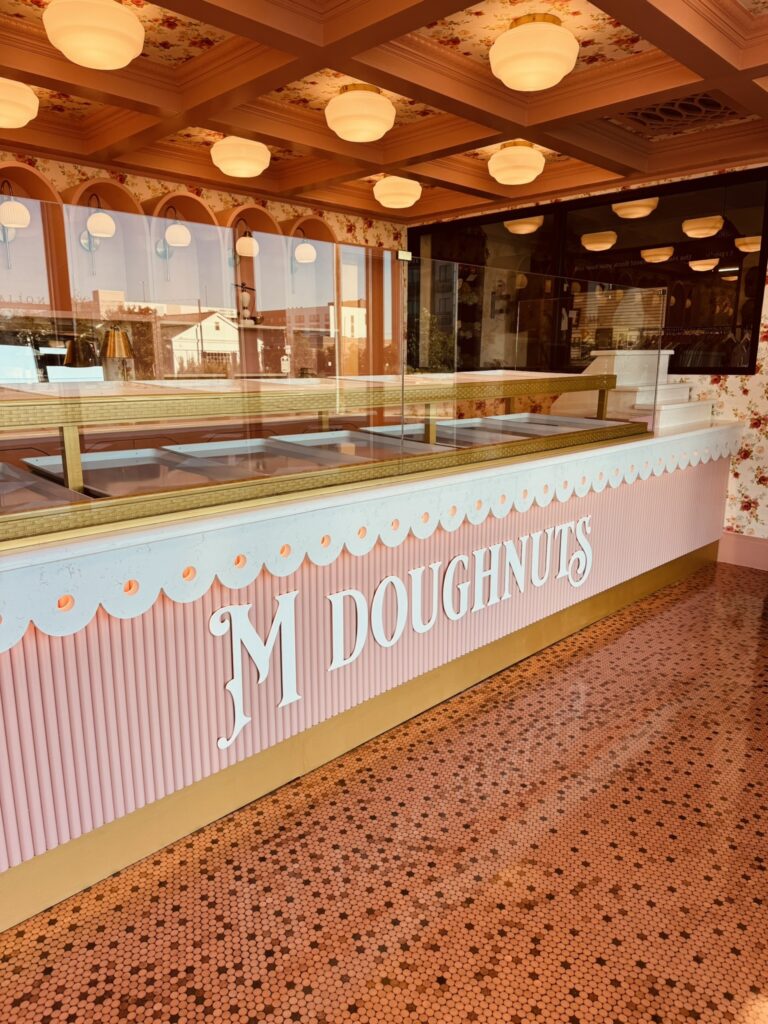
Slumber Rollz (New Location)
101 S New Road, Waco, TX 76710
Your favorite cinnamon roll shop has moved to a new location! Slumber Rollz is in a bright pink building on the corner of Franklin and New Road. They make all of their dough for bread and baked goods in-house, daily. The lemonade is freshly squeezed, coffee beans are ground on site, and milkshakes are handspun at Slumber Rollz. From different combo options to multi-packs for sale, you will walk out with every craving curbed. Get something savory and sweet from Slumber Rollz in one stop!
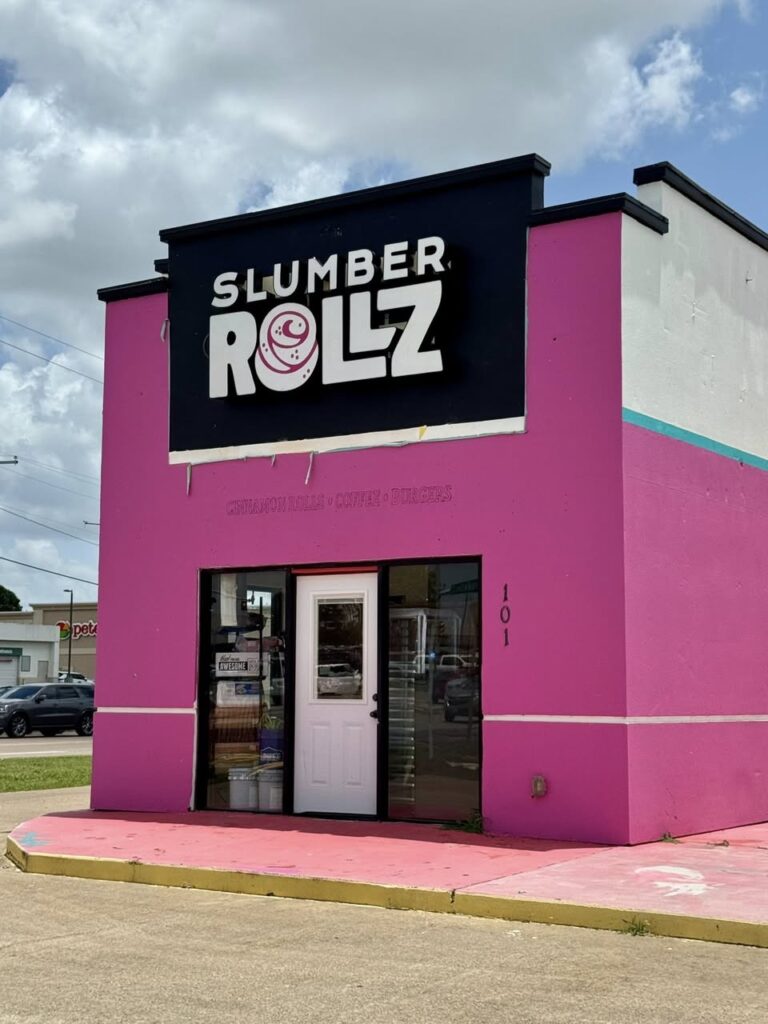
Uptown Cheapskate (Opening Soon)
1001 Webster Avenue, Waco, TX 76706
In the Webster Market with Casa Do Brasil and Flamingo Ranch, this second-hand shop, Uptown Cheapskate, is making its grand opening very soon. Clean out your closet, drop off some clothes, and earn cash or in-store credit for shopping! Buying second-hand allows you to spend less on brands you love, with all profits staying in and around your area. Uptown Cheapskate has any clothing item you could need, from active wear to cocktail dresses. Stop by and shop soon!

Elizabeth Riley hails from Tennessee and is a graduate of English Literature and Professional Writing & Rhetoric from Baylor University. With passions in archival preservation, communal connection, and women in sports, she writes because it matters, with hopes of bridging villages and fostering revelry amongst them.
A common misconception about Waco is that there’s nothing to do here.
If that is coming from a transplant, by means of work, school, or life, they are just wrong. If that is coming from a native or naturalized Wacoan–what I call someone who has been in the area a while–it could seem that way, especially if you’ve gotten familiar with what is already here and established a presence in the community.
However, Waco has been growing beyond proportions in recent years, which all living here can agree on due to the amount of traffic and the number of orange cones.
With the growth of our city and surrounding areas, the blossoming communities, and the booming industries, there are tons of new (or soon-to-be) establishments in Waco for natives, transplants, and visitors to check out.
Digi Golf Club
1412 N Valley Mills Dr, Suite 108, Waco, TX 76710
This indoor golf simulator is the first of its kind in Waco. Revolutionizing golf in Central Texas, Digi Golf Club allows players to enjoy a full 18 holes from iconic greens across the world. Bucket list destinations are brought right to Waco. Bring your clubs, hit some balls, and enjoy the always-perfect weather at Digi Gold Club. Not to mention, it is open 24/7! Bring your friends and stop by Digi Golf, located right off Valley Mills, at any time.
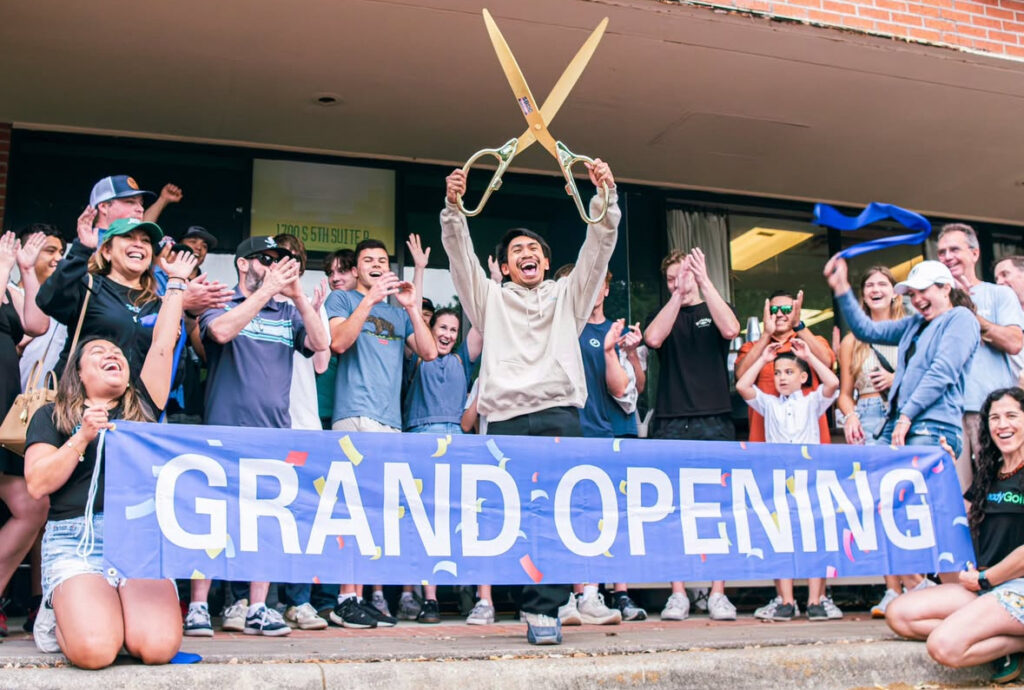
ReadyGolf
1700 S 5th St, Suite B, Waco, TX 76706
What started as a class project at Baylor University has turned into an accessible, fun, and future-focused business that is centered around a passion for golf. Whether it’s your first time holding a club or you’re wanting to perfect your swing, ReadyGolf is bringing weatherproof, pressure-free play to our city. Need a break from the simulator? Sit back in their comfortable lounge chairs, where you can catch the Baylor game, stream your favorite show, or just kick it with friends.
Hammer & Stain–New Location
1225 Richland Dr, Suite 3, Waco, TX 76710
This DIY workshop is a wood and paint studio where people of all skill levels can make custom home decorations. All tools, materials, and instructors are provided, so bring your creativity and get painting! A new location has been opened on Richland Drive. Hammer & Stain is the perfect space for craft parties and family bonding.
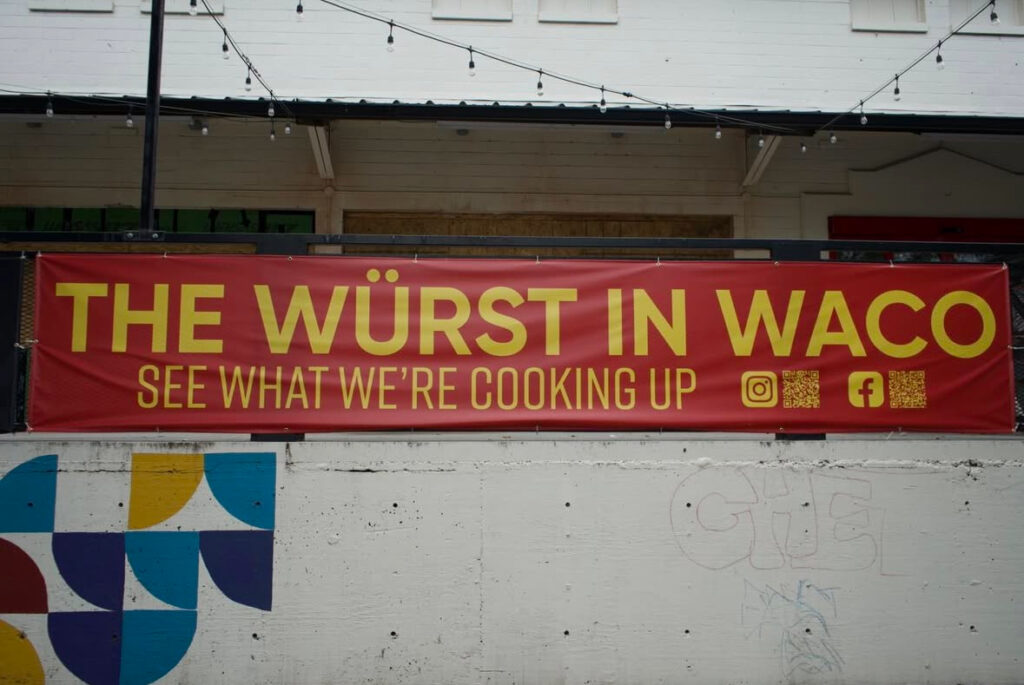
Dog Haus Biergarten–Opening July 31, 2025
215 S University Parks Dr, Suite 102, Waco, TX 76706
Signature beef dogs, handcrafted sausages, and grilled burgers all served on toasted King’s Hawaiian rolls. With creative culinary combinations to top each item on the menu, there is plenty to explore. From sliders to bad-ass breakfast burritos, Dog Haus has garnered national attention for their wide array of quality eats.
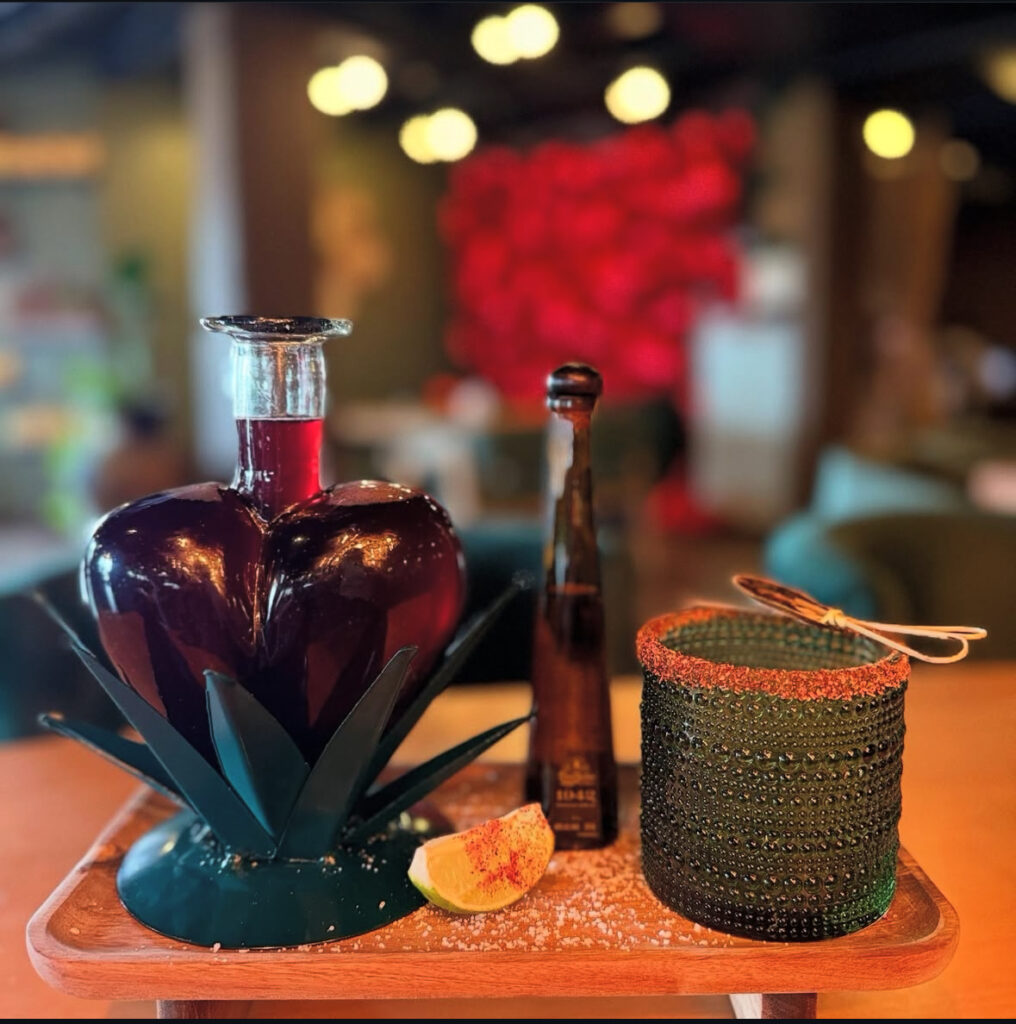
Sagrado Cocina and Bar
215 S University Parks Dr, Suite 107, Waco, TX 76701
With traditional Mexican flavors and modern vibes, Sagrado Cocina and Bar is the dining destination of your dreams. Hot salsas, craft cocktails, and melt-in-your-mouth meals will have you coming back to this bold environment again. The picturesque interior is highly styled, and the culinary concoctions match the energy. Having just opened this spring, Sagrado is still climbing in notoriety around Waco. Dine with them to find out for yourself!
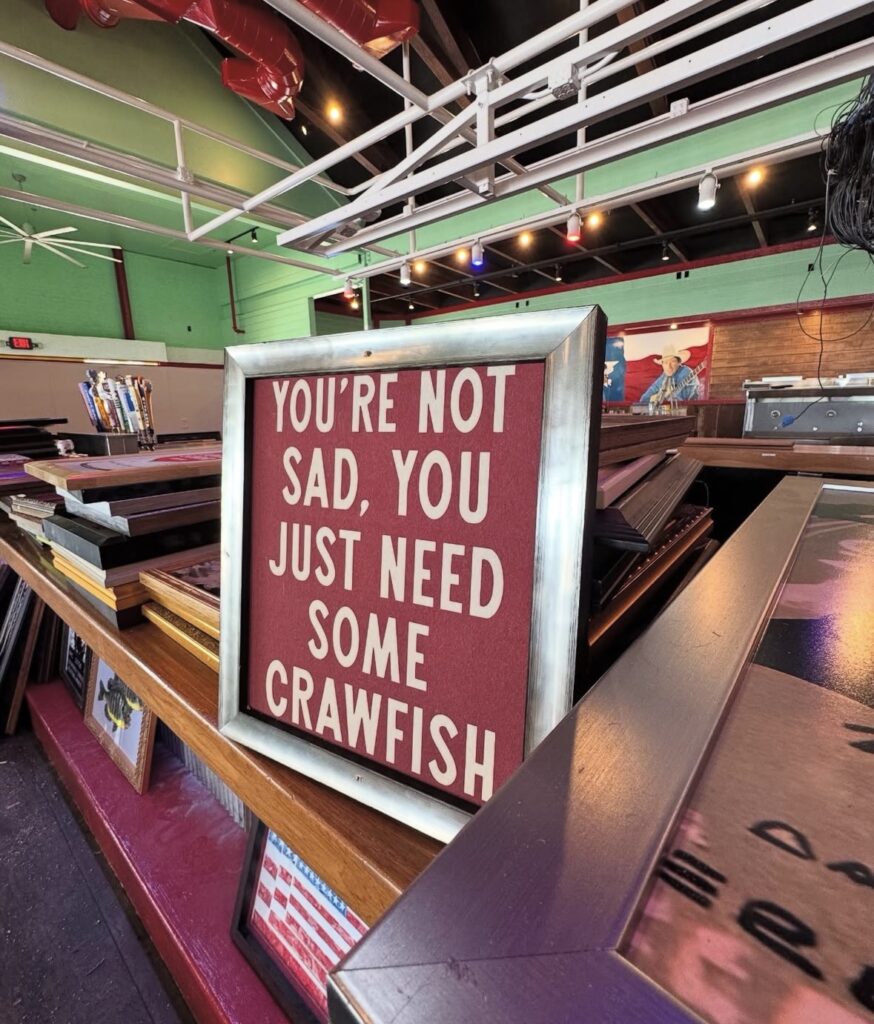
Tia Juanita’s Fish Camp–Opening Late July
4671 S Jack Kultgen Expressway, Waco, TX 76705
This Southeast Texas restaurant chain provides a taste of Mexican food spiced with Cajun cuisine. Tia Juanita’s has found a match made in heaven. Try some Grilled Boudin Quesadillas or Blackened Gator Tacos. Perhaps you’d prefer the oyster bar. Anyway, you will be going home stuffed and satisfied! Tia Juanita’s Fish Camp will be coming to Waco very soon, so keep your eye out for the ‘Mexi-Cajun’ creations they are bringing to town.
Tru Jamaica–New Brick and Mortar
937 Taylor St, Waco, TX 76704
After losing their building in East Waco to a fire, Tru Jamaica is reopening its doors. This colorful, easygoing Jamaican eatery serves up delicious oxtail, jerk chicken, and a multitude of curry entrees. Try the flavorful, flaky patties with beef, chicken, or vegetables. With unique Jamaican drinks available as well, you do not want to miss this cuisine.
This is the first installment of “New Things for Old Wacoans To Do.” If you know of a restaurant/business opening up, or one that recently has, send the information to [email protected].
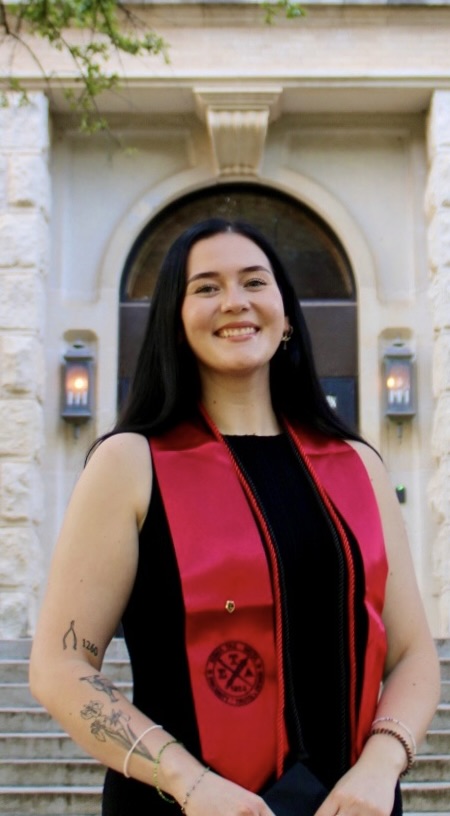
Elizabeth Riley hails from Tennessee and is a graduate of English Literature and Professional Writing & Rhetoric from Baylor University. With passions in archival preservation, communal connection, and women in sports, she writes because it matters, with hopes of bridging villages and fostering revelry amongst them.
Alpha Omega Grill & Bakery
929 Franklin Ave, Waco, TX 76701
Built out of an old transmission shop in historic downtown Waco, Alpha Omega Grill & Bakery is a fantastic Mediterranean joint serving gyro sandwiches, fresh pita, and mezze platters. There is much on this menu to obsess over, and a second location was opened in Hewitt for locals who couldn’t get enough. Alpha Omega offers gluten free, dairy free, and vegan options.

Around the World Bakery
119 N 12th St, Waco, TX 76701
This bakery and coffee shop is bringing internationally inspired desserts directly to downtown Waco. Owned by Hillsboro native, Adilene Camarena, this shop was inspired by the owner’s travels around the world and her own passions in culinary arts. With gluten free options, this bakery takes you around the world from your neighborhood.
Harvest on 25th
112 N 25th St, Waco, TX 76710
This locally owned farm to table restaurant in Waco serves breakfast and lunch everyday from 8 am to 3 pm. With vegan options, gluten free possibilities, and recipes that push the boundaries of standard food, Harvest has something to easily satisfy everyone. With picnic style tables, flowers at every turn, and laughter echoing through the space, Harvest is the place to be with some beautiful community.
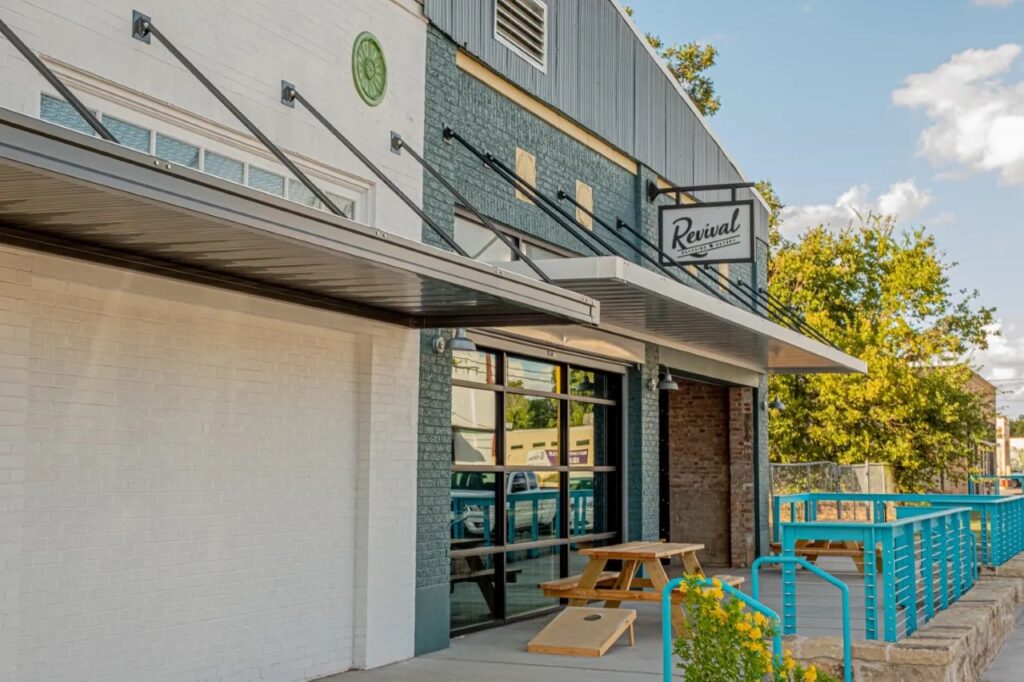
Revival Eastside Eatery
704 Elm Ave, Waco, TX 76704
In the heart of historic East Waco, this female owned business serves up delicious salads, sandwiches, and burgers. With a list of craft beers and wine to sip on, Revival has everything you could possibly be craving! Try their iconic sweet potato fries or tomato soup, which are bursting with flavor in every bite.

YAKI Texas Teriyaki
1307 S Valley Mills Dr, Waco, TX 76711
Keeping it simple so that more can enjoy it, YAKI Texas Teriyaki is gluten, dairy, and nut free. This drive-in on Valley Mills serves BBQ rice boxes to-go. Spice up your favorite dish with specialty house sauces, also known as “soss.” Rice, protein, soss, and slaw–a complete meal in a box! Fun foods, crazy colors, and mindful meals makes YAKI one of the best.
While these facilities have gluten free options on the menu, it is important to consider cross contamination in all cases. Please double check with each eatery to confirm their gluten-free dedication. Some items from these places are not safe for those with celiac disease.
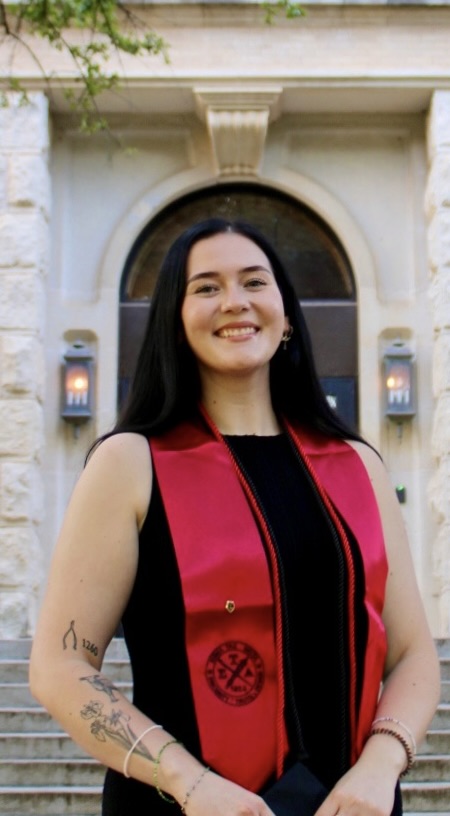
Elizabeth Riley hails from Tennessee and is a graduate of English Literature and Professional Writing & Rhetoric from Baylor University. With passions in archival preservation, communal connection, and women in sports, she writes because it matters, with hopes of bridging villages and fostering revelry amongst them.
By Elizabeth Riley
Spring is the season of rebirth for all creatures alike, leaving our summers filled with numerous displaced animals throughout the streets of Waco. On any walk or drive around town, these animals are bound to cross our paths, seeking help and a little bit of love. Texas summers are sweltering hot, with the sun heating up pavement on roads and sidewalks to unimaginable temperatures. If you’re uncomfortable being in this heat, these vulnerable, defenseless creatures feel just as bad.
Stray animals suffer from sunburn, heat exhaustion, and dehydration just like us. While an animal’s paw pads are thick and durable for all-terrain, they burn within minutes on hot pavement. If you see an animal walking quickly with high steps, quite like a horse at a show, take a moment to show it some compassion, bring them into a cool space, and give them some rest. The least we can do is inform our animal-loving selves on how to handle another one of our vulnerable populations and take action to help the animals in our city.
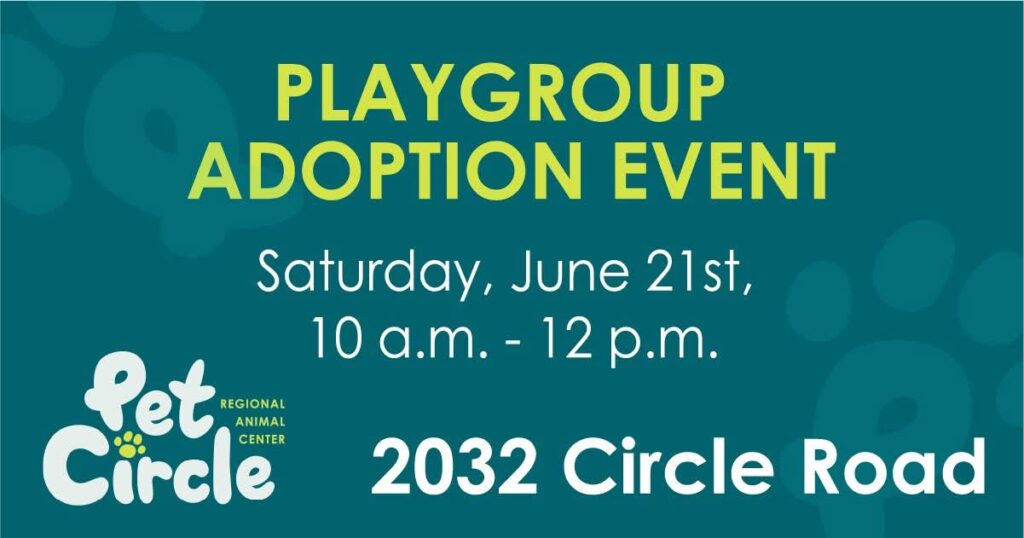
Animal Rescue 101:
- Check Microchip for Owner Information: When rescuing any animal, the first goal should be to reunite them with their owner. To do so, check for any identifying tags or scan them for a microchip at a local fire station or humane society. Most animals are implanted with microchips before adoption, but many owners fail to register their information with their pet–you can double-check at your next vet appointment!
- Waco fire stations scan stray animals for microchips and send finders off with information sheets and surrender waivers. Dropping an animal anywhere for purposes of abandonment is illegal.
- Reunite the Animal with the Owner or Surrender to the Humane Society: Reuniting a missing pet with their worried owner is one of the best feelings in the world. However, if a microchip or additional information is missing, dropping the animal off at the nearest shelter is the next best option. Waco animal shelters are currently over capacity.
- At Pet Circle, all payment fees have been waived to promote rehoming. While encouraging adoption from all of our local animal shelters, pet owners should do vast research before taking on such responsibilities.Pets are family. These vulnerable creatures depend on us like children, needing intense care, effort, and patience.
- At Fuzzy Friends, where founder and director Betsy Robinson has just stepped down, workers are converting bathroom stalls into kennels to house dogs.
- Foster or Volunteer with Local Shelters: While many fear the foster process due to the stereotypical “foster fail” tale, the process of bringing comfort to an animal long enough for them to express their personality and matching them with a proper family is highly rewarding.
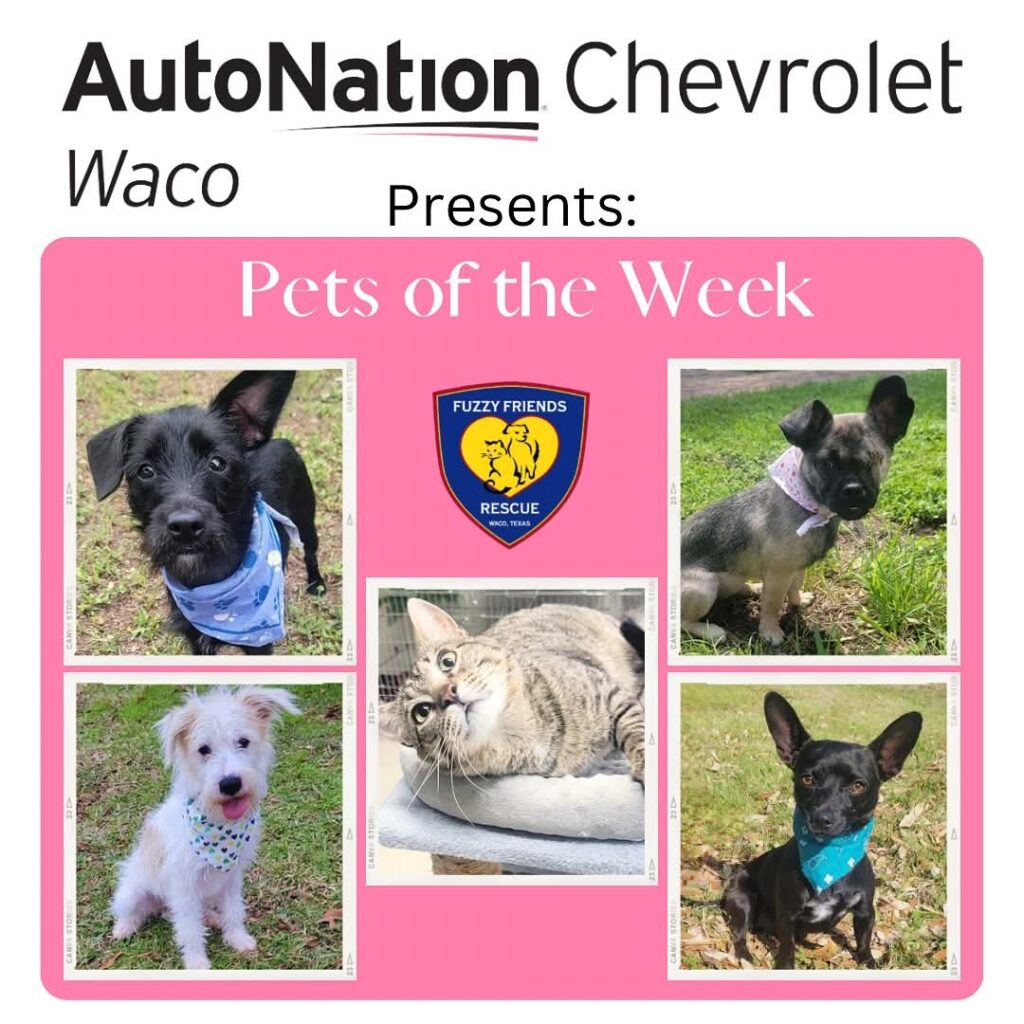
If you’re unable to open your homes to these animals, you can still dedicate your time to their care by volunteering. While loving on these creatures, they easily open up and display their unique characteristics worthy of adoration. Your time, care, and compassion can help in rehoming these animals. Our local shelters need our help.
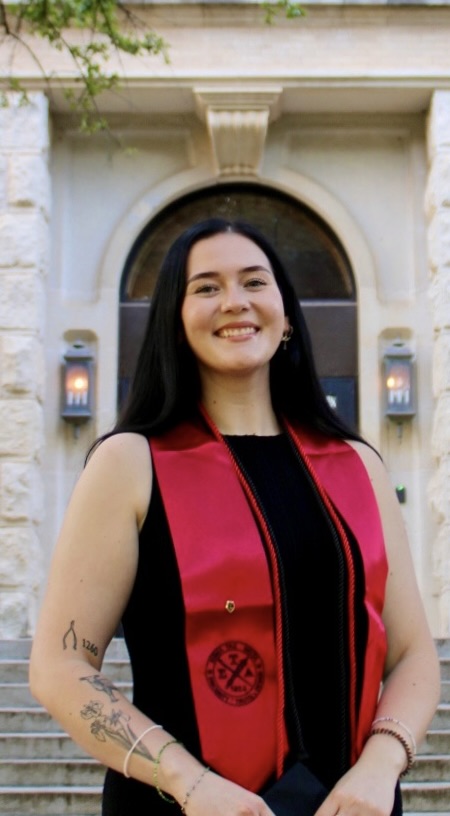
Elizabeth Riley hails from Tennessee and is a graduate of English Literature and Professional Writing & Rhetoric from Baylor University. With passions in archival preservation, communal connection, and women in sports, she writes because it matters, with hopes of bridging villages and fostering revelry amongst them.
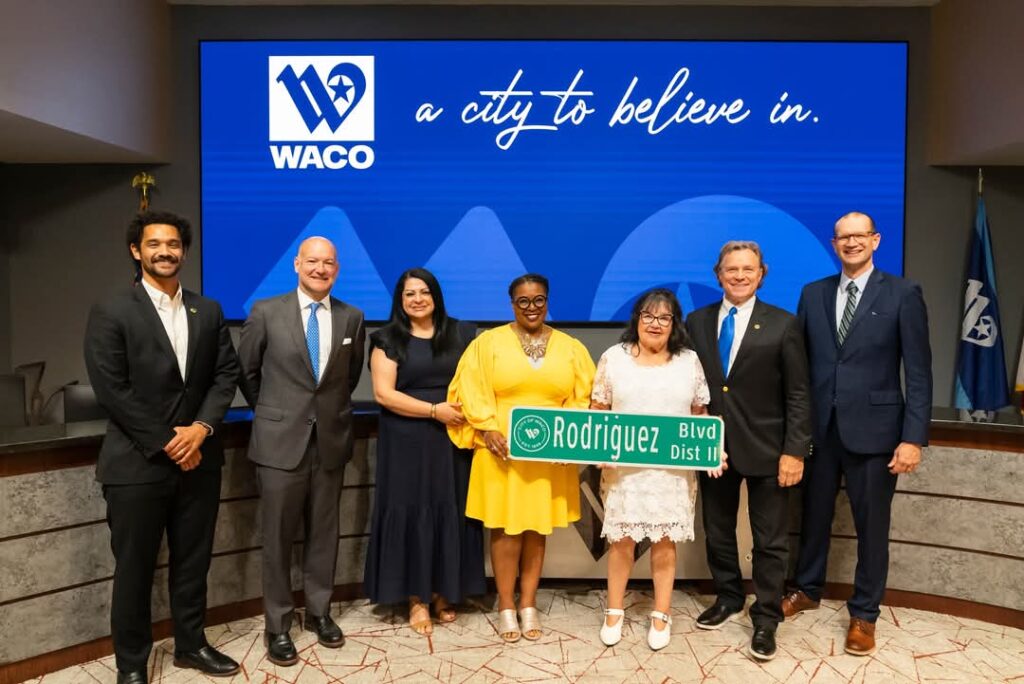
WACO, Texas — At Tuesday’s City Council meeting, Council Member Alice Rodriguez concluded more than 26 years of service as she passed leadership of District 2 to Isabel Lozano.
Rodriguez’s final meeting featured a mariachi performance and a reception in her honor, highlighting her decades of dedication to South Waco. Mayor Jim Holmes also announced the development of a new public space — Alice Martinez Rodriguez Park — to be built at the former Floyd Casey Stadium site in recognition of her lasting impact on the community.
Rodriguez’s legacy includes championing key initiatives such as the Cotton Palace ballfields, the Floyd Casey housing development and various Hispanic heritage programs.
The City of Waco extends its sincere gratitude to Rodriguez for her years of service, leadership and commitment to District 2.
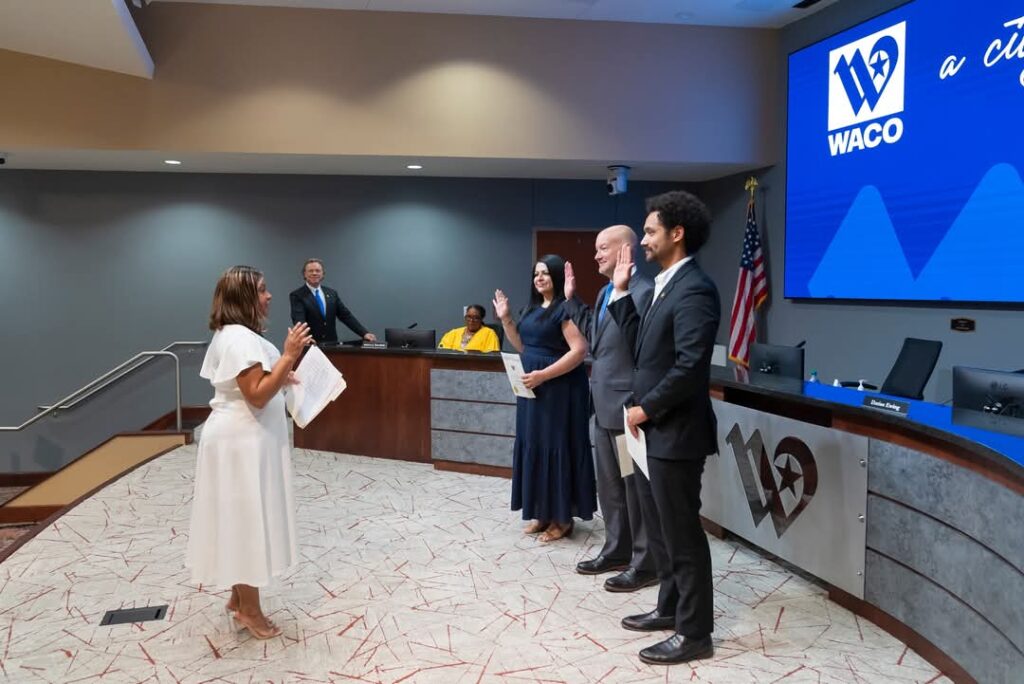
This week’s meeting also marked the swearing-in of three council members: returning members Darius Ewing (District 4) and George Chase (District 5), as well as newcomer Isabel Lozano (District 2). All will serve two-year terms.
Additionally, Council Member Andrea Barefield (District 1) was named mayor pro tem by a vote of the council. The mayor pro tem assumes mayoral duties in the absence of Mayor Holmes.
The city looks forward to continued progress under the leadership of its newly seated council.

WACO, Texas – RESCHEDULED – Brazos Nights returns this summer with a season of free concerts along the Brazos River, offering live music, local food trucks and family-friendly activities.The popular concert series begins Friday, April 25th, at Indian Spring Park, just off University Parks Drive. This year’s opening act is Bowling for Soup, a Texas-based band known for hits such as “1985,” “Girl All the Bad Guys Want” and “High School Never Ends.”Concertgoers can enjoy the riverfront amphitheater’s scenic views while sampling local cuisine and participating in community events. Additional performances are scheduled throughout the summer, including a special Independence Day celebration on July 4 at McLane Stadium.For a full schedule of events, performers and vendor details, visit the official Brazos Nights website.
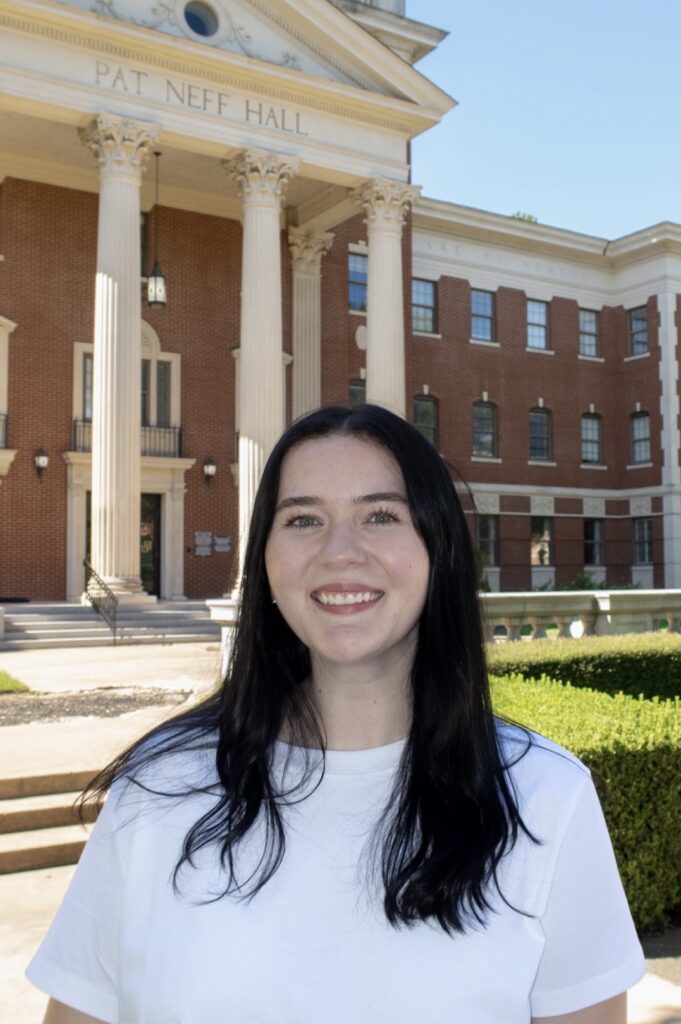
Elizabeth Riley hails from Tennessee and is a senior double majoring in English and Professional Writing & Rhetoric at Baylor University. She works as a Transcription Assistant at the Baylor University Institute for Oral History and is President of the Baylor Ice Girls for the 2024-2025 season.
WACO, Texas – The Waco Downtown Farmers Market hosted its first gathering at Bridge Street Plaza on Saturday, marking a new chapter for the weekly event. While initial concerns about parking suggested patrons might face a 15-minute walk, most attendees found themselves within a five- to 10-minute stroll of the market.
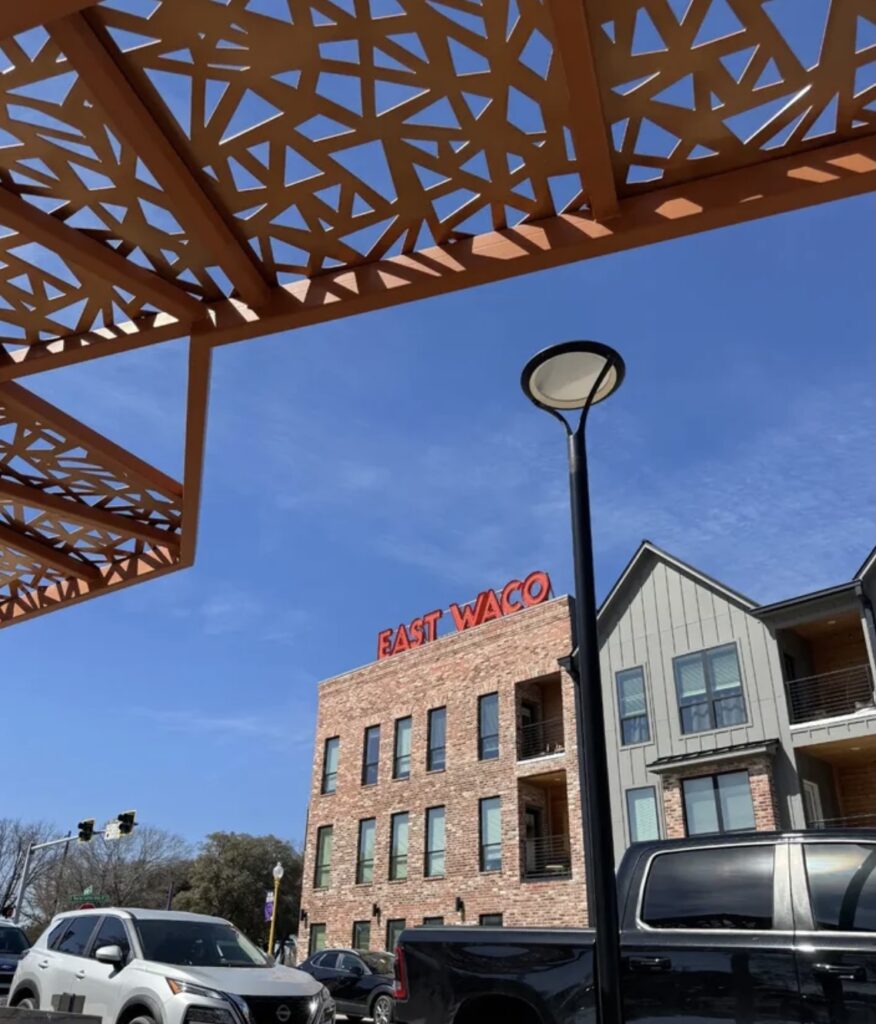
The new East Waco location proved to be an upgrade, offering walkable pathways between vendors, open green spaces for families and pets, and shaded seating areas. At the heart of the market, musicians performed on a central stage, adding to the lively atmosphere on a picture-perfect day.
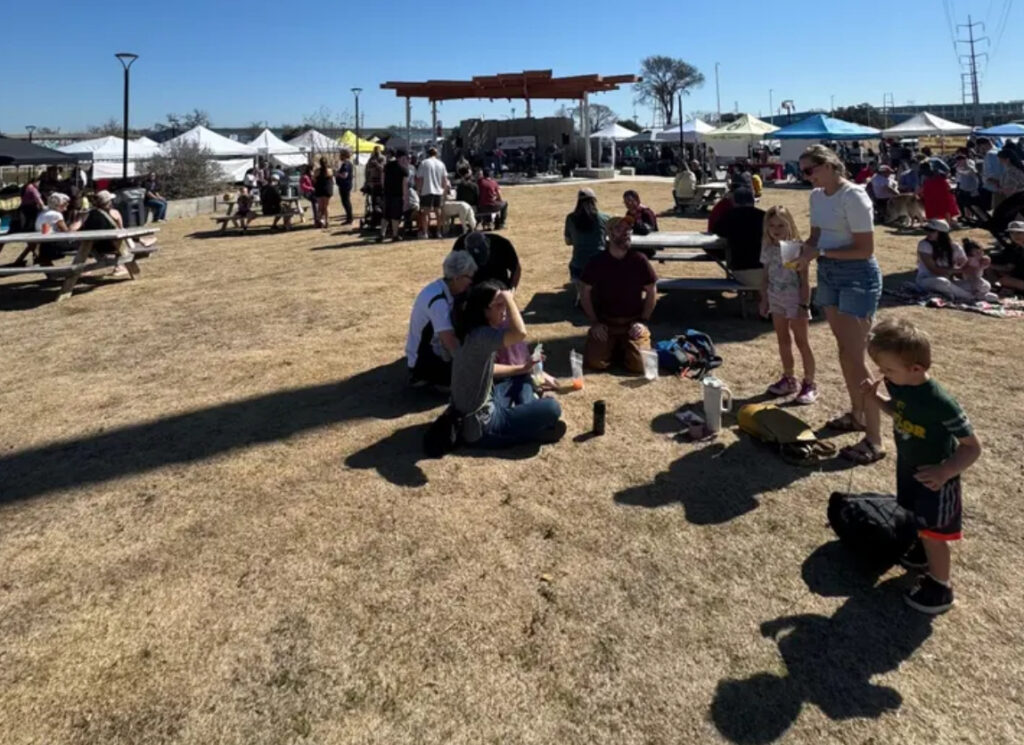
The debut at Bridge Street Plaza drew a strong turnout, leading to long lines and high demand. Some vendors sold out of products before noon. Travis French, owner of No Label Mushrooms, was optimistic about the market’s future.
“I’ve been doing markets for a long time—many in the area. With this kind of turnout, we’ll stock more next time,” French said. “We just hope this crowd and energy continue.”
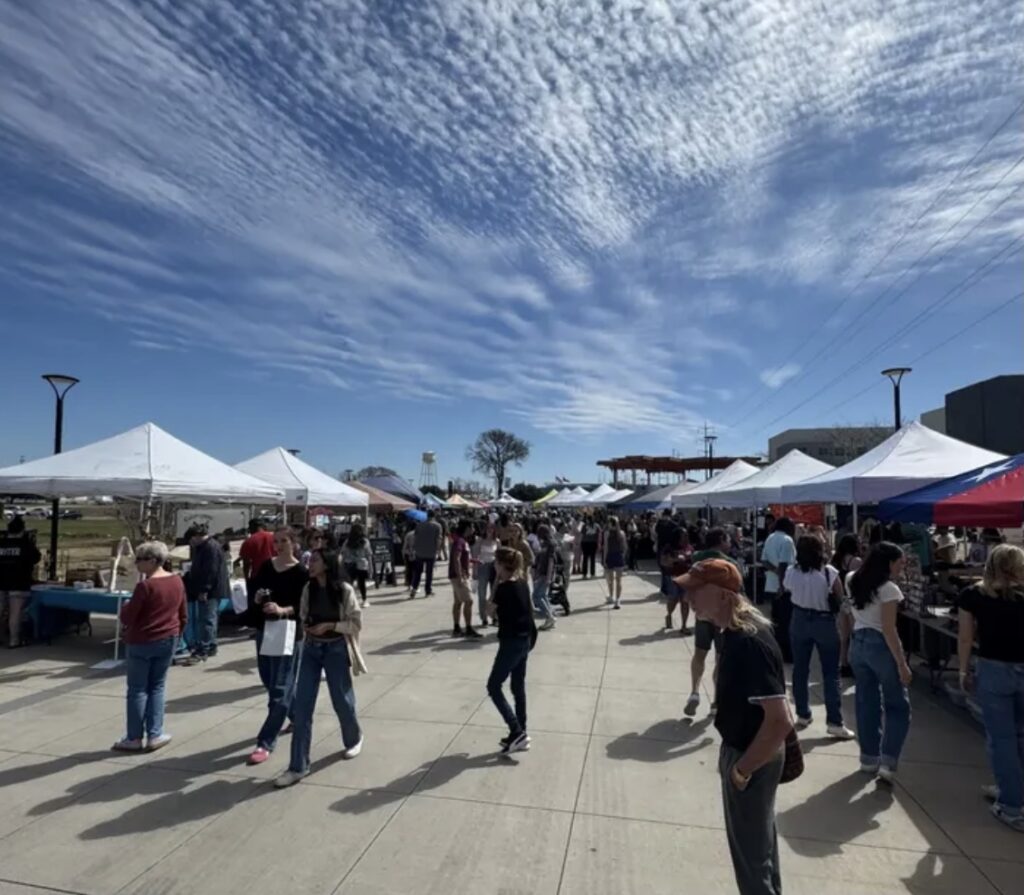
With sunny skies, enthusiastic crowds, and a strong sense of community, the Waco Downtown Farmers Market’s first event in East Waco was a resounding success.

Elizabeth Riley hails from Tennessee and is a senior double majoring in English and Professional Writing & Rhetoric at Baylor University. She works as a Transcription Assistant at the Baylor University Institute for Oral History and is President of the Baylor Ice Girls for the 2024-2025 season.
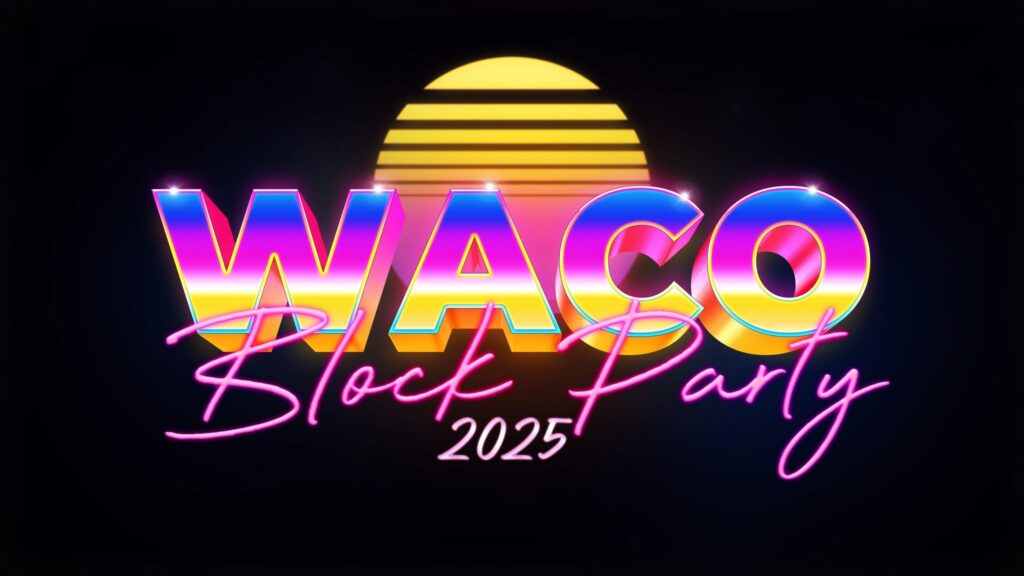
Waco Block Party 2025 is set to bring the community together once again for a weekend filled with music, local vendors, and a celebration of creativity. From February 28 to March 2, this annual event, hosted by Southern Roots Brewing Co. and Rogue Media Network, will showcase Waco’s vibrant arts and culture scene while supporting a meaningful cause.
This year’s Block Party will benefit The Cove, a nonprofit organization dedicated to providing resources and support for unhoused youth in Waco. The Cove is a Waco-based nonprofit designed to specifically provide a safe space for youth experiencing homelessness to access the resources they need to thrive. The Cove serves our community as a safe haven for high school students experiencing homelessness, offering essential services such as hot meals, showers, laundry facilities, and access to counseling, job training, and academic support. Their mission is to create a nurturing environment where youth can find stability, develop skills, and build a path toward a brighter future.
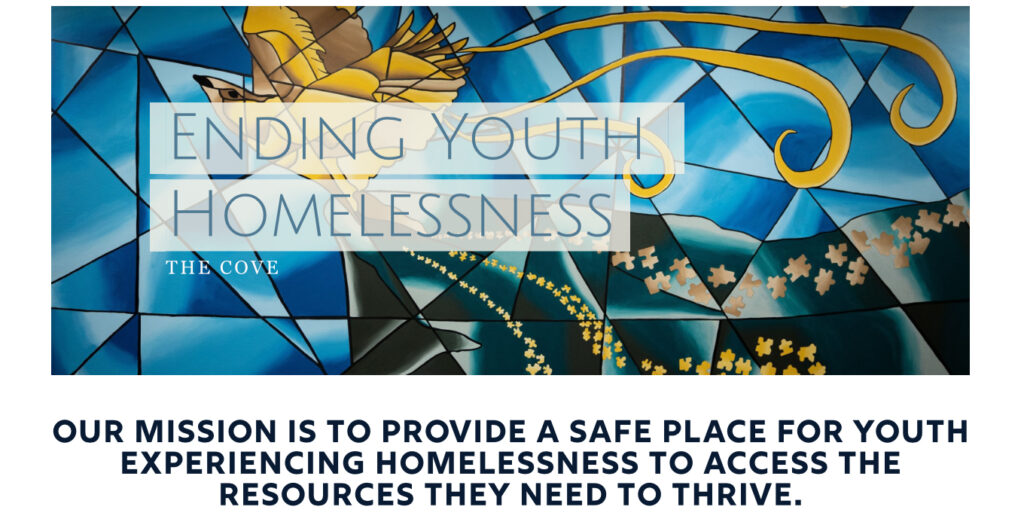
With a full lineup of events designed to engage and entertain, the weekend promises something for everyone.
The event kicks off on Friday, February 28, with an All Request Piano Night at Southern Roots Brewing Co. From 7 to 10 PM, guests can request their favorite songs, sing along, and enjoy craft beer and food from Southern Roots, setting the tone for an exciting weekend ahead.
Saturday, March 1, is packed with activities, including a Battle of the Bands, a vendor market, and a car show. Local musicians will compete for the top spot, while vendors showcase unique handmade goods and businesses from across Waco. Car enthusiasts will also have the chance to admire a variety of classic and custom vehicles. With entertainment, shopping, and community engagement all in one place, it’s the perfect way to spend the day.
The weekend concludes on Sunday, March 2, with The Texas Creator Awards at the Waco Hippodrome. This event highlights some of Texas’s most talented podcasters, filmmakers, writers, and social media creators, recognizing their impact on storytelling and digital media. The awards ceremony is a chance to celebrate the creative voices shaping the region’s artistic landscape.

Waco Block Party isn’t just about having a great time—it’s about giving back. A portion of the proceeds from the event will go directly to The Cove, helping provide much-needed services to youth in need. By attending, sponsoring, or spreading the word, the Waco community can play a role in making a lasting difference.
Mark your calendars and gather your friends for a weekend of music, community, and purpose. Stay connected by following Southern Roots Brewing Co. and Rogue Media Network on social media for updates. https://www.wacoblock.party/
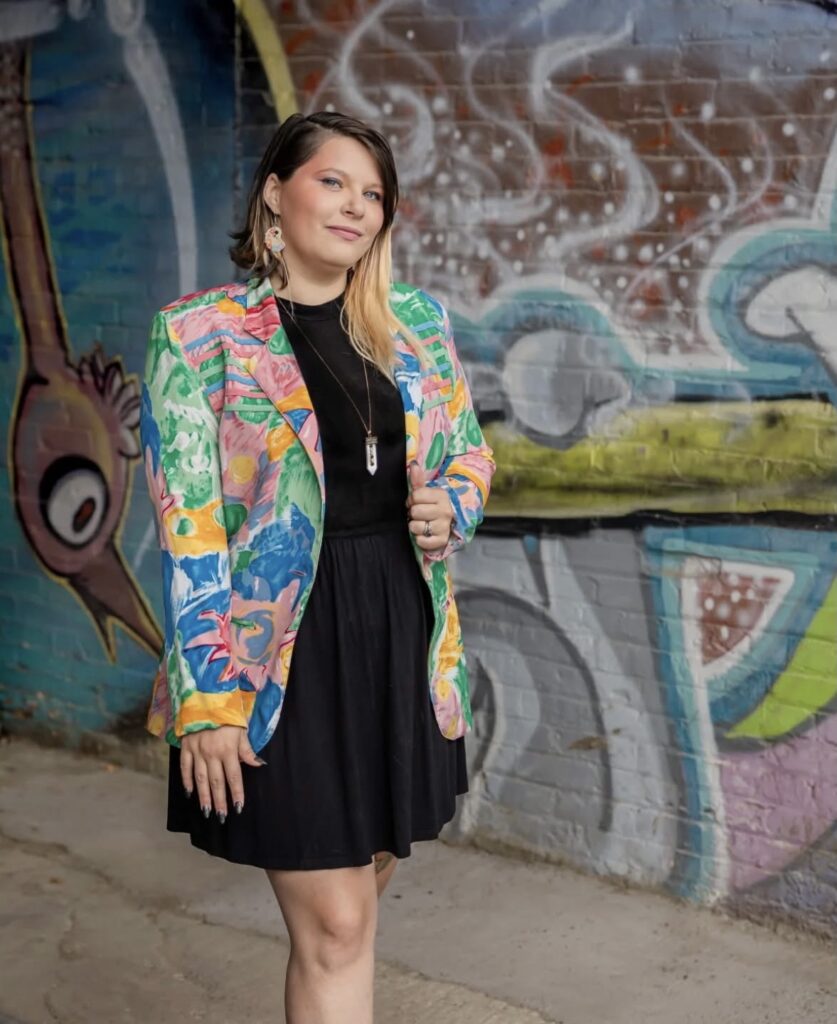
Debbie Wright is driven by a passion for social media management, digital storytelling, and community activism. She specializes in creating engaging online content. Through blogs, she explores local culture, art, lifestyle, and travel, while fostering connections within the community. As part of rebranding Cultivate Waco, she has lead a community art initiative project that hosts pop-ups, classes, and events to inspire creativity and collaboration. Tune into the Know Waco podcast for dynamic conversations and insights.
If you are searching for the perfect holiday activities to entertain family and friends, look no further. This is a comprehensive list of available shows and events catering to the holiday season, the spread of Christmas joy, and the interests of all in our community.
Waco Wonderland will be hosted December 6th through the 8th in downtown Waco. This three-day day celebration, brought about by the City of Waco, the Downtown Public Improvement District, City Center Waco, and other sponsors, kicks off the holiday fun and cheer.
With a tree lighting, a firework show, a snow tube slide, a ferris wheel, and visits with Santa, this community-wide spectacle is a fantastic attraction for all ages. Be sure not to miss the Christmas Parade and Grouchy Santa Experience happening on Saturday night!

Cha Community x Designs with Jamie are overseeing the BIPOC Holiday Market on December 7th from 11 a.m. to 3 p.m. This market will feature 15+ Black, Indigenous, People of Color (BIPOC) small businesses, handmade vendors, and local artists. Cha Community is also providing a Buy One, Get One (BOGO) sale on boba drinks with the event, so sip and shop with the community at 1001 Franklin Avenue!
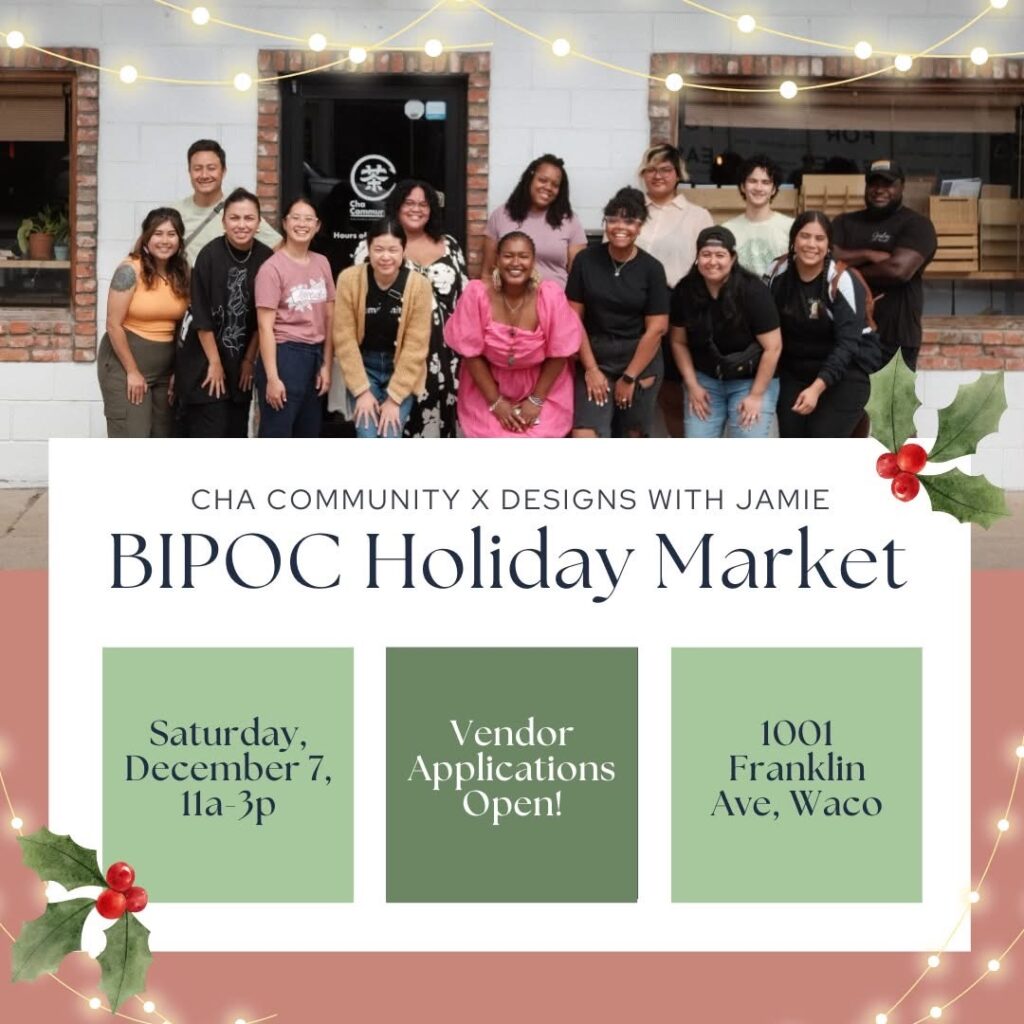
Waco Civic Theater is performing It’s a Wonderful Life: The Musical throughout the start of December. With shows from the 5th to the 8th, the 12th through 15th with varying start times, there are plenty of opportunities to see this classic Christmas narrative performed through song! Later in the month, join the Civic Theater for the Royce Montgomery Rat Pack Christmas and Rudolph: The Red-Nosed Reindeer. Show dates, times, and tickets are available on their website.

Waco Symphony Orchestra will be performing The Nutcracker, a treasured holiday tradition, on Saturday, December 14th at 7 p.m. and Sunday, December 15th at 2 p.m. These shows will take place at the beautiful Waco Hall on Baylor University’s campus. After the Sunday matinee, meet and take photos with the Sugar Plum Fairy and Cavalier Prince in Roxy Grove Hall.

The Waco Trolley Christmas Lights Tour is a ninety minute tour of the greater Waco area, displaying the greatest Christmas light assortments in our community. This particular tour will be hosted from November 29th through December 28th, with plenty of opportunities to snag tickets to this cherished event! The Trolley Tour takes the stress out of finding the best light displays, navigating through the slow vehicles, and crafting the delicious hot cocoa.
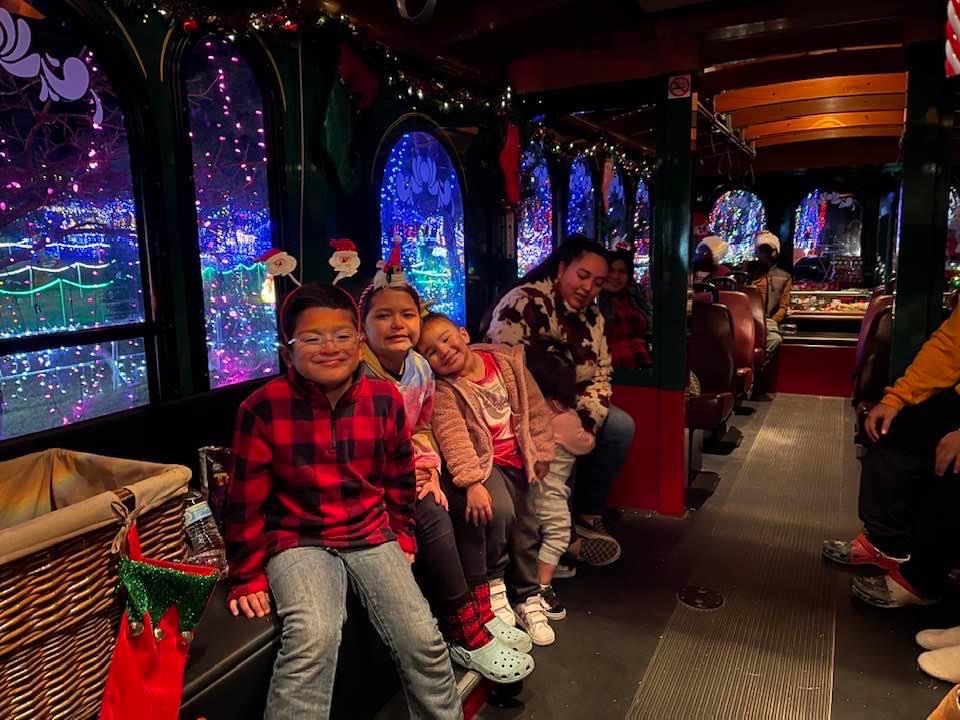
Cameron Park Zoo is inviting you to Wild Lights! This event will take place from November 29th through December 31st, from 6 p.m. to 9 p.m. each night. Experience the Cameron Park Zoo from a different light, with Christmas spirit floating through the park.

The Mayborn Museum will be recreating the holiday season in the historic village, with Christmas Lights in the Village starting on December 13th through the 15th. They will have a second opportunity to attend from the 20th through the 22nd. The Christmas Village will occur from 6 p.m. to 8:30 p.m each night, with creative storytelling and the beloved Christmas Train.
